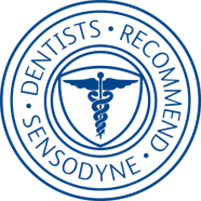
Your Sensodyne Profile
Summary of Symptoms
Based on what you told us in the Online Check Up, here's how your responses match up to the more common symptoms of tooth sensitivity:
- Discomfort with hot foods or drinks
- Discomfort with cold foods or drinks
- Discomfort with certain types of foods
- Discomfort with certain types of drinks
- Discomfort in cold weather
- Discomfort when cleaning teeth
Oral Health Habits
Here’s how your responses to the Online Check Up could relate to some of the factors which over time can contribute to the underlying causes of sensitive teeth:
- Brushes teeth more than 3 times a day
- Brushes teeth straight after eating/drinking
- Brushes teeth very vigorously
- Brushes with a hard bristle toothbrush
- Grinds teeth
- Frequent consumption of acidic foods and drinks on a daily basis
Helpful Information for You
Most of us could do more to improve our oral health, so why not start today? Here are some general oral healthcare tips for you:
Note - tooth sensitivity is unusual in children under 12 years of age. If you are concerned about your child's teeth, please consult a dentist for advice.


